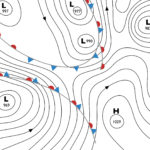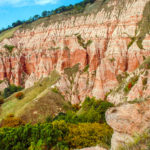2023澳洲幸运5开奖记录 澳洲幸运五开奖结果查询官网 澳洲5开奖历史记录查询 Start Planning Your Career as an Environmental Scientist Today
EnvironmentalScience.org is the ultimate guide to everything you need to know about starting your career as an Environmental Scientist. We offer information on all aspects of becoming and working as an Environmental Scientist, including:
- Average Environmental Science Salaries for different professions
- Common Work Environments
- Completing Education Requirements
- Finding the Right College Program
- Environmental Scientist Job Possibilities
Environmental Scientists have rewarding, challenging, and well-paying careers that offer excellent opportunities for growth and advancement. With the resources provided by EnvironmentalScience.org, you can begin your journey towards earning a degree in Environmental Science and following the career of your dreams.
What is an Environmental Scientist?
Environmental Scientists are those who work in a variety of fields related to the Earth and its resources. They may work in a variety of roles from Environmental Lawyer, Coral Reef Sanctuary Manager, Antarctic Researcher, Laboratory Technician, Wastewater Technician, or Solar Panel Engineer. They have gone through school in a variety of ways to obtain their current positions.
Environmental science, studies, policy, and management degree programs are offered at many colleges and universities throughout the world, including quite a few in the United States and Canada. Many students may have begun in a different major, and gone on to graduate school for an Environmental degree.
What does an Environmental Scientist Do?
Environmental Scientists work with the Earth's Resources. That is a very broad definition, but considering an Environmental Scientist could be doing anything from helping increase palm wood production in the forests of Samoa to sampling frozen lakes in Siberia or arguing legal cases before the Supreme Court, Environmental Scientists do a lot! Most communities employ at least a few at their local sanitation station, in their building/roads department, and in their public health departments. That would be considered a minimum for a very small community. Cities hire entire environmental legal teams, employ water and transportation teams, infrastructure specialists, local environmental specialists, parks and recreation, etc. The US government is a huge employer; the United States Environmental Protection Agency, the National Park Service, the National Oceanographic and Atmospheric Administration, the United States Geological Survey, and the Department of Energy are just a few of the major employers at the federal level. The private sector also hires a lot of Environmental Science professionals. They may work in as college professors, in R&D, as lobbyists, as remediation specialists, journalists, etc. Here are some potential jobs/careers:
- Agricultural Engineer
- College Professor
- Park Ranger
- Oceanographer
- Toxicologist
These are just a few of the possible jobs performed by Environmental Science majors. The variety in what they do is almost limitless, depending on the schooling, the individual, and their location.
We've categorized the careers by five distinct career sets:
- Environmental Science Careers
- Agriculture & Forestry Careers
- Environmental Policy & Planning Careers
- Sustainability & Green Careers
- Public Health Careers
Most popular degrees for environmental scientists:
- Environmental Science Degree / Online Environmental Science Degree
- Environmental Law Degree
- GIS Degree
- Sustainability Degree
- Public Health Degree
Skills Many Environmental Scientists Have in Common
- Collecting Samples
One of the most important responsibilities for Environmental Scientists is to, either, collect their own samples, oversee the collection of samples, or, at least, understand the collection of samples. Standard Operating Procedures (SOPs) should be in place for sample collection at all levels, whether it is a food sample, an atmospheric sample, or a drinking water sample. Whether you are a park interpreter or a lawyer for a major industry, it is imperative to understand how you, or your company, reached its research decisions. This is one reason why the laboratory portion of Environmental Science coursework is so important.
- Interpreting Results
Many high level Environmental Scientists are paid mainly to do just this; interpret results. Upper level employees often have to convey their findings; whether they are doing so in the courtroom, at a scientific meeting, or at a village council meeting discussing zoning regulations. It isn't just something for the experienced decision makers though. Even field workers that collect routine samples need to be able to use their own judgment from time to time on to decide if something is significant enough to make note of it for the scientific team doing the work. Having a solid understanding of scientific thinking is important to carry out any job as an Environmental Scientist.
- Acting ethically, and humbly
This seems intuitive. But, oftentimes scientists, like any other group of humans, can get caught studying something so specific that they lose sight of the big picture. Recognizing if you made a mistake is very important, and sharing credit where it is due is as well. Yes, there are exceptions to this rule, but a good course in ethical behavior is very valuable for your future. Numerous Environmental Science major programs will include one in their required courses.
Where Do Environmental Scientists Work?
The U.S. Bureau of Labor Statistics estimates that Environmental Scientists were employed in roughly 87,100 jobs in 2020, and should expect to see an 8% growth rate in job openings. These Environmental Scientists worked in a variety of settings, some listed below.
- Various levels of schools, elementary through universities
- Independent research laboratories
- Local, state, and federal governments
- Environmental Remediation companies
- Oil and fossil fuel companies
- Pharmaceutical research companies
- Independent contractors (generally to one of the above)
In addition, Environmental Scientists can find work in other settings by becoming a journalist, working in the Peace Corp, serving in the military, or working as consultants for their own small company. Be sure to evaluate the many potential Environmental Science careers.
How Do I Become an Environmental Scientist?
If you want to become an Environmental Scientist, you should look at what your specialties are. If you know you already have a key interest, research the job market for that position. What are employers looking for someone to have experience doing? In general, you will need at least a Bachelor's degree, possibly graduate school.
- Will you be in policy or science?
- Do you want the upper level positions or are you okay doing someone else's research idea?
- Do you want to work in the field or in a laboratory?
- Do you like to invent?
- Do you want to travel?
Some Environmental Science programs have established internships or give credit for internships. There is nothing like hands-on experience to let you know if you are doing something you enjoy. Work-study, if available, is another great resource for gaining experience and learning if you enjoy something. Others have well established travel programs. Be sure they offer courses in what you need. For example, you may assume all schools have GIS training programs, but perhaps they do not.
How Do I Find an Environmental Science Program That's Right for Me?
One of the toughest and most important decisions you'll make when you decide to become an Environmental Scientist is where to attend school. Not all Environmental Science programs are created equal, and some may be a better fit for you than others. When you're weighing your options, it's important to take a few factors into consideration:
- Do I want to go to class in person, online, or both?
- Where will I work when I finish? Will I want to rely on contacts from school to help me find work?
- Does the school near me offer everything I want, or do they only offer certificates, or minors?
- Will I go to graduate school afterwards?
- Should I try to do a 5 yr Master's program?
- Can I afford the school of my choice?
- Will I have a chance to work with a professor I emulate?
How Much Do Environmental Scientist's Earn?
According to the US Bureau of Labor and Statistics, the median annual wage for environmental scientists and specialists was $73,230 in May 2020. The lowest 10 percent earned less than $42,960, and the top 10 percent earned more than $129,450. The following is a further breakdown.
Federal government, excluding postal service: $103,180, Engineering services: $75,780, Management, scientific, and technical consulting services: $71,960, Local government: $69,840, State government, excluding education and hospitals: $67,700.
2020 US Bureau of Labor Statistics salary figures and job growth projections for Environmental Scientists and Specialists reflect national data not school-specific information. Conditions in your area may vary. Data accessed September 2021.
























